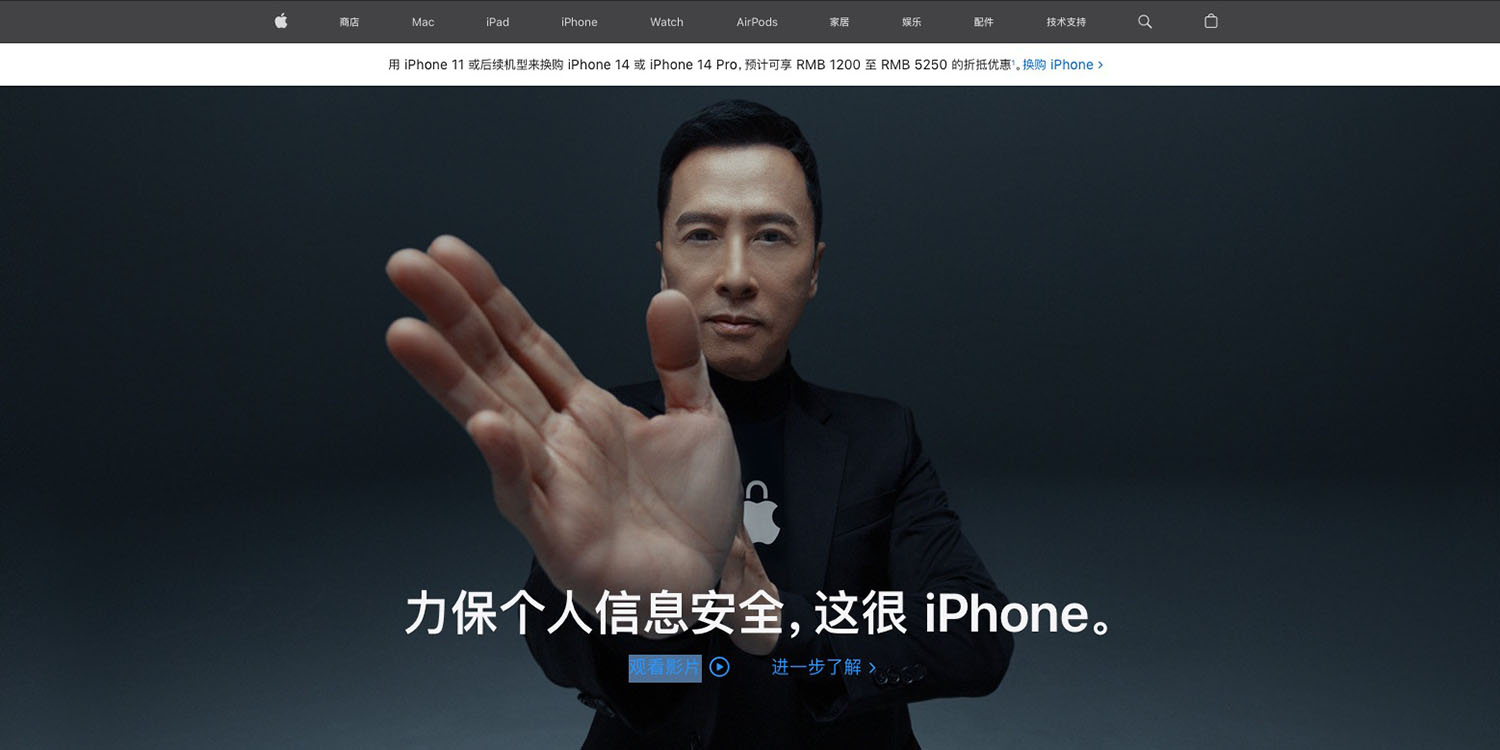
Yesterday we got to enjoy a new Apple privacy video, created to highlight the way that the Health app protects our medical data. Today the Chinese version of the Apple website features another fun privacy video (linked below), and you don’t need to speak Mandarin to enjoy it …
That’s because the video is all action, with only the accompanying song lyrics in Mandarin.
It’s a pretty brave ad for Apple to run, given that it shows men in suits attempting to surveil citizens – which seems a rather on-the-nose reference to mass surveillance by the Chinese central government.
Wikipedia has a good summary of the state of government surveillance in China.
In 2005, the Chinese government created a mass surveillance system called Skynet. The government revealed Skynet’s existence in 2013, by which time the network included over 20 million cameras. In addition to monitoring the general public, cameras were installed outside mosques in the Xinjiang region, temples in Tibet, and the homes of dissidents.
In 2017, the Chinese government encouraged the use of various mobile phone apps as part of a broader surveillance push. Local regulators launched mobile apps for national security purposes and to allow citizens to report violations.
As of 2018, the most notable surveillance mechanisms were mass camera surveillance on the streets, internet surveillance, and newly invented surveillance methods based on social credit and identity.
As of 2018, the Chinese central government had also adopted facial recognition technology, surveillance drones, robot police, and big data collection targeting online social media platforms to monitor its citizens.
In 2019 NSA whistleblower Edward Snowden said China’s mass surveillance mechanisms and machinery of private communications was “utterly mind-boggling”. As of 2019, it was estimated that 200 million monitoring CCTV cameras of the “Skynet” system had been put to use in mainland China, four times as many as the surveillance cameras in the United States. State media in China claim that Skynet is the largest video surveillance system in the world, utilizing facial recognition technology and big data analysis. In 2019, Comparitech reported that 8 out of 10 most monitored cities in the world are in China, with Chongqing, Shenzhen and Shanghai being the world’s top 3. In 2019, China supplied surveillance technology to most of the world, and positioned the country in control over the mass surveillance industry.
According to industry researcher IHS Markit, at the end of 2019 there were 770 million surveillance cameras in the world, with approximately 415.8 million of them located in China. If these trends continue, by the end of 2021 there will be about 1 billion in the world and 540 million in China. The government says this prevents crime, but citizens worry that their data and privacy could be compromised. In late October 2020, Deng Yufeng, an artist, used performance art to highlight how difficult it is to dodge the view of security cameras.
China also has the so-called Great Firewall of China, which blocks its citizens from accessing many websites and apps.
Apple’s dependence on China as both a manufacturing hub and a huge market for its products has often meant the company complying with some very unsavory laws – including removing VPN apps from the App Store, and storing iCloud data for Chinese citizens on a government-owned server.
That has also meant Apple being careful about what it says in public about human rights issues in the country, but in this video, the iPhone maker appears to have decided to throw caution to the wind. Hong Kong-based martial artist Donnie Yen Ji-dan plays the role of Apple’s privacy features.
Check out the video for yourself.
FTC: We use income earning auto affiliate links. More.





Comments